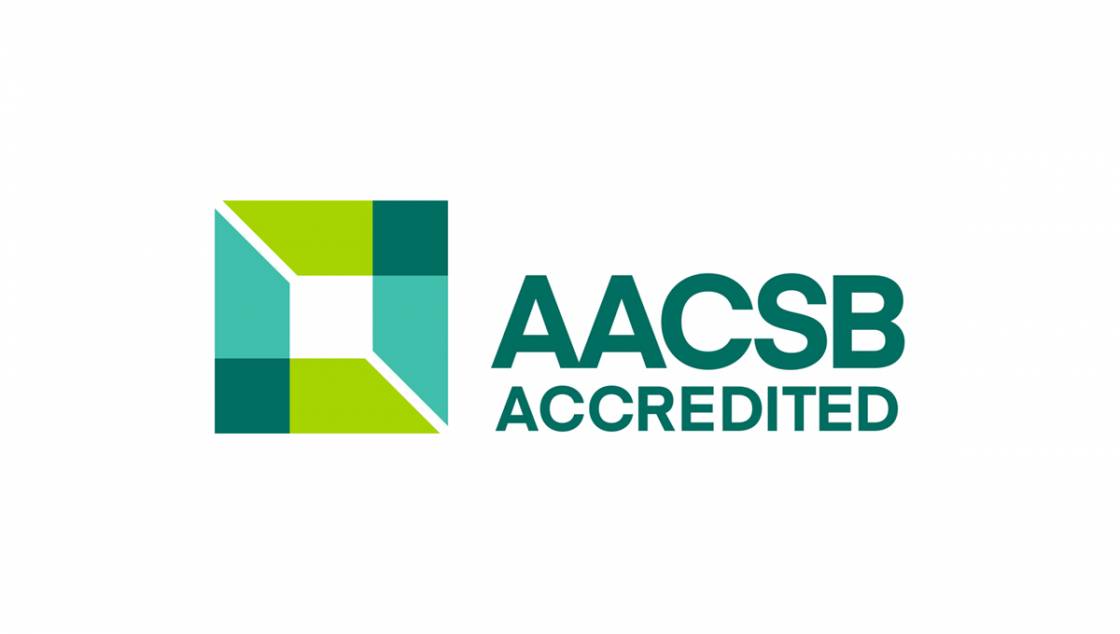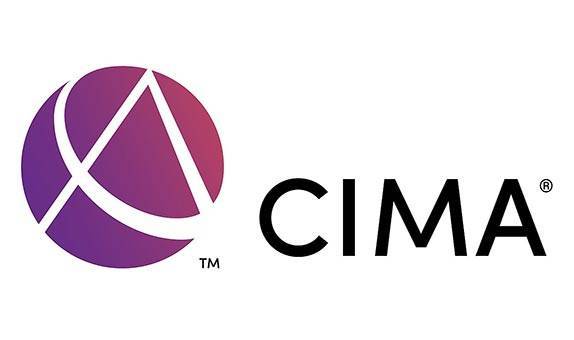Business and Accounting BSc (Hons)

Teaching Excellence Framework (TEF) Gold award
Our commitment to high quality teaching has been recognised with a TEF Gold rating. The University has received an overall rating of Gold, as well as securing a Gold award in the framework's two new student experience and student outcomes categories.
Why choose this course?
This is a practical business degree with an emphasis on accounting for those who are interested in management but also appreciate the pivotal role that money plays in running a business.
This course is ideal if you're thinking about a career in business or management, in a role that includes financial resource allocation, such as department head or practice manager.
This course has a strong emphasis on developing the skills and knowledge sought after by employers, including in-depth knowledge of contemporary business issues, team working and IT skills.
| Attendance | UCAS code | Year of entry |
|---|---|---|
| 3 years full time | N140 | 20242025 |
| 4 years full time including professional placement | N141 | 20242025 |
| 4 years full time including foundation year | N142 | 20242025 |
Please note: Teaching on this course may take place on more than one KU campus.
| Main location | Kingston Hill |
Reasons to choose Kingston University
- Opportunities to gain extra certifications in addition to your degree and take part in activities to boost your CV. You can also work or study in another country – widening your horizons while making new friends and experiencing new cultures.
- Our courses embed the development of employability and future skills.
- Kingston Business School has received a Business Accreditation by the Association to Advance Collegiate Schools of Business (AACSB). This award is earned by just 5% of the world's business schools and recognises the high quality and standards of our teaching.
- 97.9% of students thought staff were good at explaining things and supported their learning (NSS 2023).
About the Department of Accounting, Finance and Informatics
The Department of Accounting, Finance and Informatics delivers high quality degrees in accounting, banking, finance, investment, financial technology, risk management and real estate. Our courses are accredited by professional bodies including ACCA, CIMA, ACT, RICS and ICAEW.
We are located on the doorstep of London - one of the world's largest financial hubs - where our partnerships with global organisations give you access to meaningful opportunities. We are one of only a few UK universities to have a Bloomberg Trading Room.
What you will study
Take a look at some of the content and modules that you may have the opportunity to study on this course:
Year 1
Year 2
Year 3
The first year of the course exposes students to the general global business environment. The knowledge and skills developed in the first year provides a solid grounding, preparing students for broader and deeper study of the key management functions in the second year.
Core modules
Financial Accounting for Business
30 credits
This module provides you with an introduction to financial accounting. The purpose and importance of financial accounting will be explained and you will learn how to produce financial statements from the original source documents through the recording of transactions to the final production of a profit and loss account and balance sheet for a non-complex business. The module will also explicate the subjective nature of financial accounting with its need for professional judgement and you will be introduced to the concepts and principles that underlie financial accounting and reporting. You will also gain practical experience of inputting data into Sage accounting software and using spreadsheets to prepare financial information.
Management Accounting
30 credits
This module will introduce you to management accounting and develop your knowledge and understanding of management accounting techniques to support management in planning, controlling and monitoring performance in a variety of business contexts.
The Accountant's Business Environment
30 credits
This module will introduce you to theories and practices of business organisations. The internal structures and relations of businesses are covered, along with their interactions with the external economic, legal, social and technological environments. Explanations are offered of how the organisation of businesses is shaped by the behaviour of individuals, groups and organisations, and by the external influences of markets, industries and the macroeconomic environment. Special attention is given to considerations of businesses ethics and values. In the module you will engage in activities that enable you to develop your academic skills and other relevant skills, which can be applied throughout your time at university and taken into your future work and organisations.
Business Information Analysis
30 credits
This module is an introduction to the mutually dependent business topics of mathematics and information technology. It provides motivation for the use of these topics in business problem solving, and emphasises their need for one another. These days one would not use mathematics to solve a business problem without the aid of information technology, and equally importantly one cannot efficiently or effectively use information technology without mathematics. The module will be delivered using a problem-centric approach. The students will be required to design and create models using information technology to solve business-related problems.
During the second year, students develop the skills to analyse and suggest recommendations to business issues whilst furthering their knowledge of operations management, alongside developing financial accounting into reporting, and introducing accounting for management. This is further supported by opportunities for students to gain additional professional certification in industry standard software such as Bloomberg Market Concepts and the GMetrix Microsoft Office Specialist certifications. Students can take elective business modules at this level.
Core modules
Advanced Management Accounting
30 credits
This module builds on the first-year module BA4203 Management Accounting and is designed to give undergraduate accounting students an advanced course exploring the provision and use of accounting information in management decision-making. Students will be involved in an active learning approach and will be expected to reflect on the purpose and uses of management accounting information, evaluate case study scenarios, discuss theoretical accounting concepts and utilise a range of practical techniques to solve advanced management accounting related issues.
Sustainable and Responsible Management
30 credits
The module covers the concepts and knowledge of sustainable business and supply chain management by looking at the ethical issues that emerge in the interactions between a business and its stakeholders and implementation of socially responsible and sustainable programmes and initiatives. You will study Environmental, Social and Governance (ESG), innovation, the triple bottom line – economic, environmental and social sustainability in the supply chains, uncertainty and risk management, stakeholder value and reputation.
In addition, the module will provide you with the project tools and techniques that focus on how to create a business case for sustainable projects, as well as utilising traditional and contemporary project and product delivery frameworks to support the delivery of sustainable benefits both to businesses, and a wider community of stakeholders. You will consider how investment decisions can incorporate ethics and risk.
Developing Effective Marketing Programmes
30 credits
In all business environments today, there is a need to understand the ways in which effective marketing programmes and customer engagement can create the business impact outlined in business strategy. Communications skills are consistently high on the external skills requirements list. This module seeks to combine these elements to provide you with the important knowledge and skills that you will need to organise, manage, and create effective marketing and communications programmes.
Optional modules
Auditing
30 credits
Students studying this module will develop an understanding of the operational, practical and theoretical issues in auditing. Students will develop an awareness of the audit process, its limitations and the influence of regulation on audits. In order to balance theory with practice, the module will cover relevant international standards on auditing and relevant statutes such as the Companies Acts, Fraud Act, Money Laundering Act and Bribery Act. Case law, in so far as it affects auditing practices, will also be discussed. Ethics, corporate governance, environmental and social issues, fair values and information technology will also form part of the course curriculum.
Law for Accountants
30 credits
This module is designed to provide students with a general understanding of the English legal system and a more advanced understanding of the principal areas of law that may be encountered in business or professional practice and which are of concern to accounting and finance professionals, focussing on civil and criminal consequences for professionals. Furthermore, it is designed to provide students with an understanding of the formation and constitution of business organisations, company law and insolvency law.
The module commences with a focus on sources of law and the court system in England and Wales, before considering the areas of contract, agency and tort law, which underline business transactions. This module will then examine the criminal laws relevant to accountants or business in practice, including fraud, bribery and anti-money laundering. It then provides an overview of the formation and constitution of business organisations, including partnerships and companies, before considering various aspects of company law such as the formation, administration and the regulation of companies.
The module will look at the role of shareholders and directors and the financing of companies, Insolvency law will also be considered, looking at the different insolvency proceedings, such as liquidation and administration and considering the implications of insolvency.
Entrepreneurship
30 credits
This module provides you with the opportunity to engage in developing a business plan for starting up a new venture or launching an innovative product/service. You will find out what it takes develop a business plan from idea generation, feasibility analysis, marketing strategy, business model development to making financial analysis for a business plan. Students will thus learn about the different aspects of entrepreneurship and business planning.
Global Operations
15 credits
Global Operations is designed to develop students' ability to analyse different business opportunities and risks when a firm's operation goes beyond the domestic market. Students will also comprehend the practical knowledge and expertise required in a variety of operational circumstances that an international company can be faced with. This module will help students develop an integrative framework of facilitating global operations which deal with organisational structure, location decisions, international procurement and production strategies, international transport, and global supply chain risk management. The module will be delivered through a combination of lectures and tutorials.
Business Decision Modelling
15 credits
This module is designed to equip students with an advanced set of analytical data modelling tools, including optimisation, prediction and simulation, to effectively manage and support business decision-making. The module extends students' skill sets developed in the first year to include problem analysis, model building, application, and evaluation, to reflect the technical skills required in the workplace. Teaching will be via a mixture of lectures and tutorials based around lab sessions and make use of online software, materials and assessment.
Rapid App Development for Business
15 credits
This module introduces the principles of rapid app development, equipping students with the knowledge, skills and technologies required to quickly develop a typical information architecture solution that works using low or no code technologies. Students will gain experience in designing and implementing prototype solution using one of the most popular no-code environments, Mendix. The sessions will be interactive and include a mix of teacher-led learning, problem-solving, and student-led learning.
Data Analytics for Business
15 credits
The aim of this module is to give students a foundation in the uses of data analytics for business. It aims at a critical understanding of issues regarding the collection of data and the correct application of statistical techniques in a business context. The module introduces students to analytical tools and including inferential data analysis to support business decision-making. The module builds upon the skills gained during the first year and develops students' abilities for problem articulation, analysis, and evaluation. Students will develop and extend their technical skills to reflect those required in the workplace and will also develop an appreciation of the quality of data, the meaning of findings and the limitations of model building. This will enable students to make decisions on a more informed basis. Teaching will be via a mixture of lectures and tutorials based around lab sessions and make use of online software, materials and assessment.
Business Law and Ethics
15 credits
This module is designed to provide students with a general understanding of the English legal system and a more advanced understanding of the principal areas of law that may be encountered in business or professional practice and which are of concern to accounting and finance professionals, focussing on civil and criminal consequences for these professionals. The module commences with a focus on sources of law and the court system in England and Wales, before considering the areas of contract, agency and tort law, which underline business transactions. This module will then examine unethical and criminal behaviour relevant to accountants or business in practice, including ethical behaviour, fraud, bribery and anti-money laundering.
Financial Investments
15 credits
This module is designed to provide students with a broad understanding of the field of investment. The main topics covered include: the UK stock market, stock valuation, investment strategies for equities, financial derivatives, portfolio diversification, optimal portfolio construction and financial risk management. Students will use the dedicated Bloomberg dealing room and software packages to access real-time financial data. Teaching consists of traditional lectures, and also lab sessions where hands-on practical exercises are provided. The module is assessed via the Bloomberg Market Concept (BMC) certificate and two coursework where students are required to construct and manage financial solutions for a specific period.
Developing Web Applications for Business
15 credits
This module introduces the principles of Information Architecture (IA), equipping students with the knowledge, skills and technologies required to design a typical information architecture solution that works using web technologies. Students will gain experience in designing and implementing prototype solution using server-side scripting languages and database servers. The sessions will be interactive and include a mix of teacher-led learning, problem-solving, and student-led learning.
The final year draws together the different perspectives studied with a module on strategic management, which develops a critical understanding and an ability to contribute to longer-term business development. This module provides an opportunity for students to consolidate their learning via a capstone project relating theory to practice. Students develop understanding and critical perspectives of both theoretical and practical considerations and issues. The final year offers additional elective choices for students to broaden their study.
Core modules
Advanced Financial Accounting for Business
30 credits
This module focuses on the financial reporting requirements of corporate entities, both large and small and builds on concepts already studied in the first-year module, Financial Accounting for Business. This module explains the key elements of the conceptual and regulatory frameworks that guide financial reporting and also how to conduct an appraisal of financial statements of corporate entities. The importance of ethics and corporate governance will also be covered.
Building Business Strategy
30 credits
This module covers the concepts, theories and techniques on which strategic management is based and explores their application in a wide range of international business and other settings.
It aims to expand students' perspective on wider issues and scenarios, identifying opportunities and growth over medium and long terms. You will develop your ability to communicate and present your commercial awareness across the board.
Optional modules
Theory and Practice of Taxation
30 credits
Students studying this module will develop an understanding of the operational, practical and theoretical issues in personal and business taxation. They will develop skills of analysis and interpretation of information and communication of recommendations in a professional manner appropriate to the intended audience, eg. clients and HMRC.
Marketing Simulation
15 credits
This module enables students to participate in a computerised marketing game which simulates a real marketing environment. Working in teams, students will have the opportunity to make and analyse marketing decisions and learn from any mistakes in a risk-free environment. Students will identify and use relevant marketing theories and apply them to information provided by the simulation game, allowing them to make marketing decisions within specified time periods. The game provides the opportunity for students to integrate tactics with longer-term strategic decision making, since their decisions will be made over 8-to-10 periods game, which forces them to manage short-term profitability as well as long-term marketing objectives.
Teams experience the implications of their marketing decisions in a way that is close to real-life. From an employability perspective, the experience of working in teams to achieve common objectives will assist in improving students' leadership skills, as well as making decisions under pressure, resilience, and analytical skills.
Business Decision Modelling
15 credits
This module is designed to equip students with an advanced set of analytical data modelling tools, including optimisation, prediction and simulation, to effectively manage and support business decision-making. The module extends students' skill sets developed in the first year to include problem analysis, model building, application, and evaluation, to reflect the technical skills required in the workplace. Teaching will be via a mixture of lectures and tutorials based around lab sessions and make use of online software, materials and assessment.
Rapid App Development for Business
15 credits
This module introduces the principles of rapid app development, equipping students with the knowledge, skills and technologies required to quickly develop a typical information architecture solution that works using low or no code technologies. Students will gain experience in designing and implementing prototype solution using one of the most popular no-code environments, Mendix. The sessions will be interactive and include a mix of teacher-led learning, problem-solving, and student-led learning.
CSR in Marketing
15 credits
This module examines topics at the interface between corporate social responsibility (CSR) and ethical marketing, and their relevance and importance in contemporary business and marketing environments. The module also explores the role and importance of CSR and sustainability, and their implementation in key marketing decisions including advertising, branding and ethical consumption. The role of social marketing is considered - the application of marketing principles and techniques to further social good and wellbeing. Students will develop an understanding and sensitivity to ethical considerations that arise in the practice of responsible marketing and an awareness of the ethical challenges that marketers face when operating across international country markets. The module will combine a mix of interactive instructor-led lectures and workshops, and student-led learning activities including case study discussions and presentations.
Data Analytics for Business
15 credits
The aim of this module is to give students a foundation in the uses of data analytics for business. It aims at a critical understanding of issues regarding the collection of data and the correct application of statistical techniques in a business context. The module introduces students to analytical tools and including inferential data analysis to support business decision-making. The module builds upon the skills gained during the first year and develops students' abilities for problem articulation, analysis, and evaluation. Students will develop and extend their technical skills to reflect those required in the workplace and will also develop an appreciation of the quality of data, the meaning of findings and the limitations of model building. This will enable students to make decisions on a more informed basis. Teaching will be via a mixture of lectures and tutorials based around lab sessions and make use of online software, materials and assessment.
Developing Web Applications for Business
15 credits
This module introduces the principles of Information Architecture (IA), equipping students with the knowledge, skills and technologies required to design a typical information architecture solution that works using web technologies. Students will gain experience in designing and implementing prototype solution using server-side scripting languages and database servers. The sessions will be interactive and include a mix of teacher-led learning, problem-solving, and student-led learning.
Business Law and Ethics
15 credits
This module is designed to provide students with a general understanding of the English legal system and a more advanced understanding of the principal areas of law that may be encountered in business or professional practice and which are of concern to accounting and finance professionals, focussing on civil and criminal consequences for these professionals. The module commences with a focus on sources of law and the court system in England and Wales, before considering the areas of contract, agency and tort law, which underline business transactions. This module will then examine unethical and criminal behaviour relevant to accountants or business in practice, including ethical behaviour, fraud, bribery and anti-money laundering.
Financial Investments
15 credits
This module is designed to provide students with a broad understanding of the field of investment. The main topics covered include: the UK stock market, stock valuation, investment strategies for equities, financial derivatives, portfolio diversification, optimal portfolio construction and financial risk management. Students will use the dedicated Bloomberg dealing room and software packages to access real-time financial data. Teaching consists of traditional lectures, and also lab sessions where hands-on practical exercises are provided. The module is assessed via the Bloomberg Market Concept (BMC) certificate and two coursework where students are required to construct and manage financial solutions for a specific period.
Professional Selling
15 credits
The module builds on your marketing knowledge by developing your understanding of the theory and application of Professional Selling & Sales Management. Effective selling adds to shareholder value and enhances the return on investment of marketing expenditure. You will understand how to recruit, motivate and manage salespeople as the key professional selling resource, including how to balance people with finance and other resources. The module also develops your understanding of the role that IT plays in informing sales strategy development and in the structured sales planning process. The module will be of particular benefit to those aiming to develop a career in this area across the business, professional and consumer contexts. The module will combine a mix of interactive instructor-led lectures and workshops, and student-led learning activities including case study discussions and presentations.
Financial Management
30 credits
Working knowledge of finance by managers is a prerequisite for commercial viability of any enterprise. The offering of this module responds to the demand from potential employers for practically oriented education in financial management, underscored by the current stresses in financial and credit markets.
This module introduces business students to the key terminology and techniques of financial management that are regularly used in today's business environment. It lays the foundation for a proper understanding of more complex financial issues and is designed to equip you with knowledge of business finance required for making informed business decisions in a management-related career. The module explains the firm's goal of value maximisation, how the firm can make investment and financing decisions that add value, and also considers competing sources of finance available to firms and the main features of capital markets, with particular emphasis on the private sector of the UK economy. Graduates with financial management skills continue to have a competitive advantage in the job market, an edge that may become even more significant in an economic downturn.
Auditing
30 credits
Students studying this module will develop an understanding of the operational, practical and theoretical issues in auditing. Students will develop an awareness of the audit process, its limitations and the influence of regulation on audits. In order to balance theory with practice, the module will cover relevant international standards on auditing and relevant statutes such as the Companies Acts, Fraud Act, Money Laundering Act and Bribery Act. Case law, in so far as it affects auditing practices, will also be discussed. Ethics, corporate governance, environmental and social issues, fair values and information technology will also form part of the course curriculum.
International Business Operations
30 credits
International Business Operations is designed to develop students' ability to assess the business environment faced by an international company and evaluate opportunities and risks in international marketplaces. This module will help students develop decision-making skills in operational issues for international companies. Classes will be delivered as a combination of lectures and tutorials.
This module will include the following topics: global market environment, international market entry modes, international trade, risk management, culture and international human resource management, global operations, international marketing, international finance, business ethics and corporate social responsibility.
Marketing Communications
30 credits
This module concentrates on the core features of the marketing communications function within the wider context of marketing planning, with a specific focus on the advertising, sales promotion, public relations and interactive marketing communications elements of the mix.
The module incorporates theoretical and conceptual considerations with the operational aspects of marketing communications planning to ensure that students develop the skills that are essential for a career in marketing communications, whether on the agency or client side. A combination of lectures, workshops, case study analysis and student presentations support the learning experience.
International Entrepreneurship in SMEs
30 credits
This module provides students with the opportunity to discover how to plan the expansion of a small entrepreneurial business into international markets. Students will find out what it takes to plan towards expanding a small entrepreneurial business into international markets, gain experience of choosing modes of entry for small business internationalisation, assess international markets and produce financial projections for the business plan.
Psychology for Business and Management
30 credits
Psychology is a diverse scientific discipline comprising several major branches of research which study the mind and behaviour from different angles. Among these major branches of research, some produce knowledge which are highly relevant for business and management. The application of psychology to business and management issues occurs in several subareas of applied psychology, such as business psychology and, more recently, behavioural science.
This module introduces you to key concepts in business psychology and behavioural science and teaches you how to make good use of quality research to inform data and evidence-based management practices through learning to evaluate the reliability, validity, and significance of the latest psychological evidence relevant to business and management issues. It also enables you to learn how to adopt a scientist-practitioner focus to connect with various end-users of psychology research for business and management.
Service Operations Management
30 credits
This module explores the concepts, tools and techniques associated with service operations and focuses upon service evaluation, enhancement and improvement. The module is suitable for careers in retailing, financial services and consultancy.
Innovation
30 credits
Innovation acts as a key driver for economic growth providing social and economic benefits for local, national and international communities. Without innovation, our social and economic systems do not function! This module encourages you to understand how innovation actually happens by carrying out a practical innovation audit within a large established organisation. You will identify critical issues and skills needed to achieve entrepreneurially driven innovation. Since employers are seeking creative students who are able to initiate and participate in innovation activity, this module will enhance your employability in the wider world of work.
Law for Accountants
30 credits
This module is designed to provide students with a general understanding of the English legal system and a more advanced understanding of the principal areas of law that may be encountered in business or professional practice and which are of concern to accounting and finance professionals, focussing on civil and criminal consequences for professionals. Furthermore, it is designed to provide students with an understanding of the formation and constitution of business organisations, company law and insolvency law.
The module commences with a focus on sources of law and the court system in England and Wales, before considering the areas of contract, agency and tort law, which underline business transactions. This module will then examine the criminal laws relevant to accountants or business in practice, including fraud, bribery and anti-money laundering. It then provides an overview of the formation and constitution of business organisations, including partnerships and companies, before considering various aspects of company law such as the formation, administration and the regulation of companies.
The module will look at the role of shareholders and directors and the financing of companies, Insolvency law will also be considered, looking at the different insolvency proceedings, such as liquidation and administration and considering the implications of insolvency.
Please note
Optional modules only run if there is enough demand. If we have an insufficient number of students interested in an optional module, that module will not be offered for this course.
Study abroad optional year
You have the option to take an additional year to study abroad or to undertake a year-long work placement (or even a mix of both).
Foundation year: Business
If you would like to study this business degree at Kingston University but are not yet ready to join the first year of a BSc(Hons) course, you may want to consider studying this course with a foundation year.
The foundation year in business is part of a four-year degree and is taught at Kingston College, close to Kingston University's Penrhyn Road campus. You'll be introduced to professional skills, numerical concepts, business IT, marketing, customer care and business law.
Future Skills
Knowledge to give you the edge
Embedded within every course curriculum and throughout the whole Kingston experience, Future Skills will play a role in shaping you to become a future-proof graduate, providing you with the skills most valued by employers such as problem-solving, digital competency, and adaptability.
As you progress through your degree, you'll learn to navigate, explore and apply these graduate skills, learning to demonstrate and articulate to employers how future skills give you the edge.
At Kingston University, we're not just keeping up with change, we're creating it.

Kingston Business School Accreditations
Kingston Business School holds the prestigious international accreditation by the AACSB (Association to Advance Collegiate Schools of Business) in recognition of the excellence of its business education. This accreditation has been earned by just 5% of the world's business schools and recognises the high quality and standard of our business degree offerings.
Partial exemptions for professional exams
Upon graduation, if you choose to study further for a professional qualification, you may be eligible to apply for partial exemptions, which gives you credits for prior learning towards these exams and qualifications. Our association with these bodies is reviewed periodically.
This degree is currently accredited by the following professional bodies:
Specialist careers support
You will take part in an Assessment Centre Experience, providing the opportunity to experience the pathway to employment with tailored feedback to help develop your employability skills for the world of graduate employment.
- Develop your understanding of the jobs market, including current trends and opportunities, different recruitment processes and how to identify relevant roles
- Receive personalised feedback reports to help you to improve and progress
- Access additional webinars on top tips, employer expectations and best practice

At Kingston Business School we lead
Entry requirements
Teaching and assessment
Scheduled learning and teaching on this course includes timetabled activities including lectures, seminars and small group tutorials.
Who teaches this course?
You will be taught by an experienced teaching team whose expertise and knowledge are closely matched to the content of the modules on this course. The team includes senior academics and professional practitioners with industry experience. Student academic mentors also provide support during certain sessions, under the supervision of the module leader.
The following group of staff members are currently involved in the delivery of different elements of this course. This pool is subject to change at any time within the academic year.
Additional costs
Depending on the programme of study, there may be extra costs that are not covered by tuition fees which students will need to consider when planning their studies. Tuition fees cover the cost of your teaching, assessment and operating University facilities such as the library, access to shared IT equipment and other support services. Accommodation and living costs are not included in our fees.
Where a course has additional expenses, we make every effort to highlight them. These may include optional field trips, materials (e.g. art, design, engineering), security checks such as DBS, uniforms, specialist clothing or professional memberships.
Kingston Business School: be who you want to be
After you graduate
This degree is ideal for students who want a career in business or management, particularly in a role which includes financial resource allocation, for example department heads or practice managers. Typically, graduates of the BSc Business and Accounting programme will enter junior management roles within a range of organisations or, alternatively, they may follow a more accounting focused career path joining an accounting firm or accounting department within an organisation.
Key information set
The scrolling banner(s) below display some key factual data about this course (including different course combinations or delivery modes of this course where relevant).
Course changes and regulations
The information on this page reflects the currently intended course structure and module details. To improve your student experience and the quality of your degree, we may review and change the material information of this course. Course changes explained.
Programme Specifications for the course are published ahead of each academic year.
Regulations governing this course can be found on our website.

















